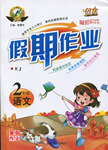题目内容
Teachers and parents usually call attention to the pictures when they read storybooks to pre-school children. But a new study suggests that calling attention to the words and letters on the page may lead to better readers.
The two-year study compared children who were read in this way in class with children who were not. Those whose teachers most often discussed the print showed clearly higher skills in reading, spelling and understanding. These results were found one year and even two years later.
Shayne Piasta, an assistant professor of teaching and learning at Ohio State University, was an author of the study. She says most pre-school teachers would find this method manageable and would need only a small change in the way they teach. They already read story-books in class. The only difference would be increased attention to the printed text. “If you get children to pay attention to letters and words, it makes sense that they will do better at word recognition and spelling.” But she says research suggests that very few parents and teachers do this in a systematic way.
More than 300 children aged four and five were observed in classrooms. They came from poor families and were below average in their language skills. This put them at risk for reading problems later. For thirty weeks, the children took part in a program called Project STAR--- Sit Together and Read. The project is based at Ohio State. It tests the short-term and long-term results of reading regularly to pre-school children in their classrooms.
There are different ways that adults can talk to children about print. They can point to a letter and discuss it, and even trace the shape with a finger. They can point out a word and discuss the meaning of the print or how the words tell the story. And they can talk about the organization of the print--- for instance, showing how words are written left to right in English.
1.What do we know about the ways pre-school children are usually taught?
A. Equal attention is paid to the texts and the pictures.
B. Teachers prefer to talk about the organization of the print.
C. Parents focus on bringing children up to be good readers.
D. More attention is paid to the pictures, with words and letters being ignored.
2. What does Shayne Piasta suggest pre-school teachers should do in class?
A. Use different methods according to the students’ difference in reading skills.
B. Teach children how to draw pictures to get an idea of what they mean.
C. Change the way they teach and pay more attention to words and letters.
D. Read storybooks to children rather than explain the meaning of the pictures.
3.What put more than three hundred children at risk for reading problems?
A. They were poor and lacked language skills.
B. They were four and five.
C. They were forced to leave school.
D. They were observed.
4.Which of the following is TRUE about the study on language skills of pre-school children?
A. Project STAR aims to find the results of reading to pre-school children in the classrooms.
B. Attention on the pictures has made the children uninterested in reading.
C. Many teachers want to change their way of teaching pre-school children.
D. Teachers are often prevented from taking different approaches to language teaching.
5.Adults can talk to children about print in the following ways except________.
A. Discussing the meaning of the print.
B. Showing them all kinds of pictures.
C. Talking about the organization of the print.
D. Tracing the shape of a letter with a finger.
 鸿图图书寒假作业假期作业吉林大学出版社系列答案
鸿图图书寒假作业假期作业吉林大学出版社系列答案
